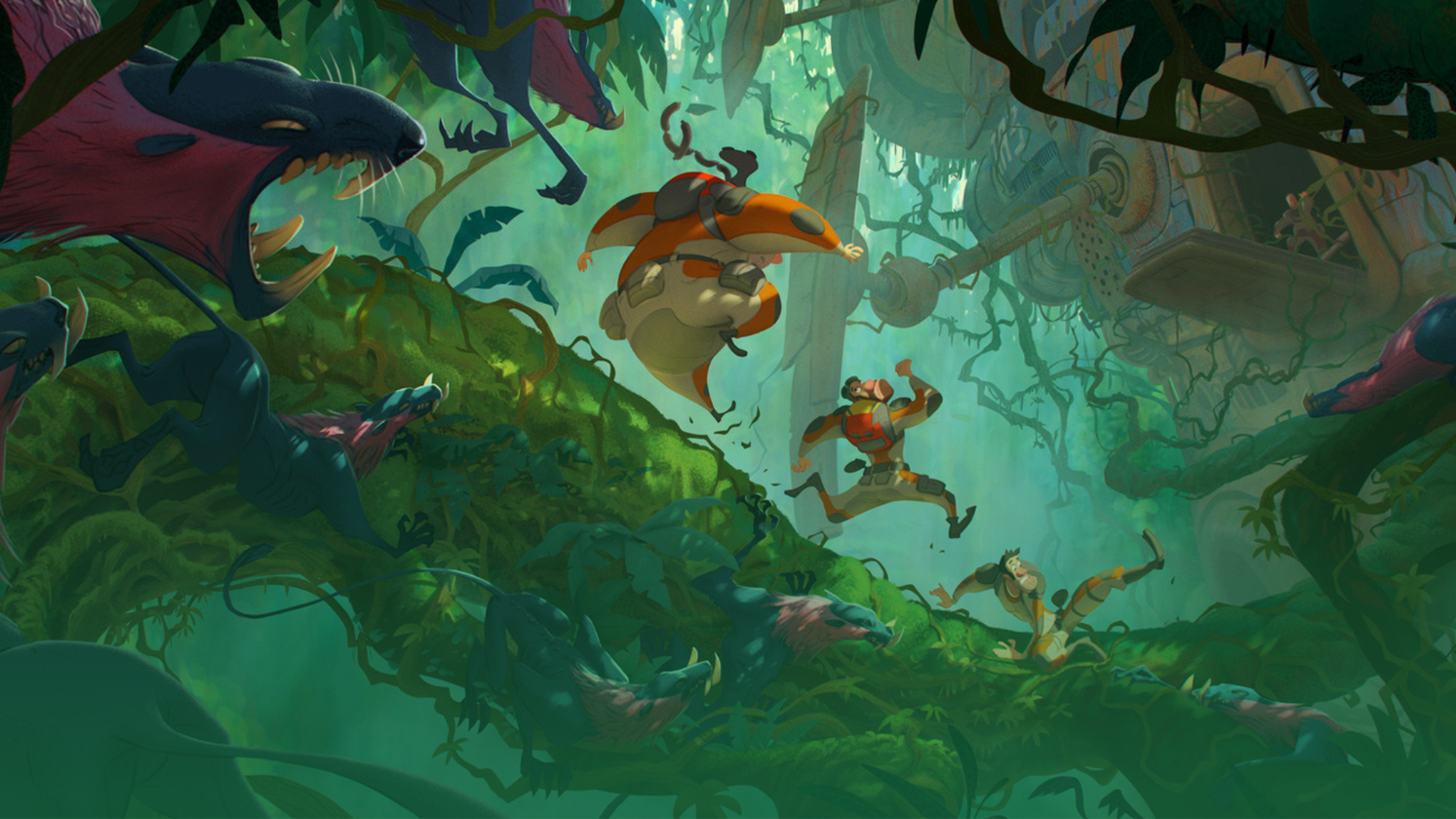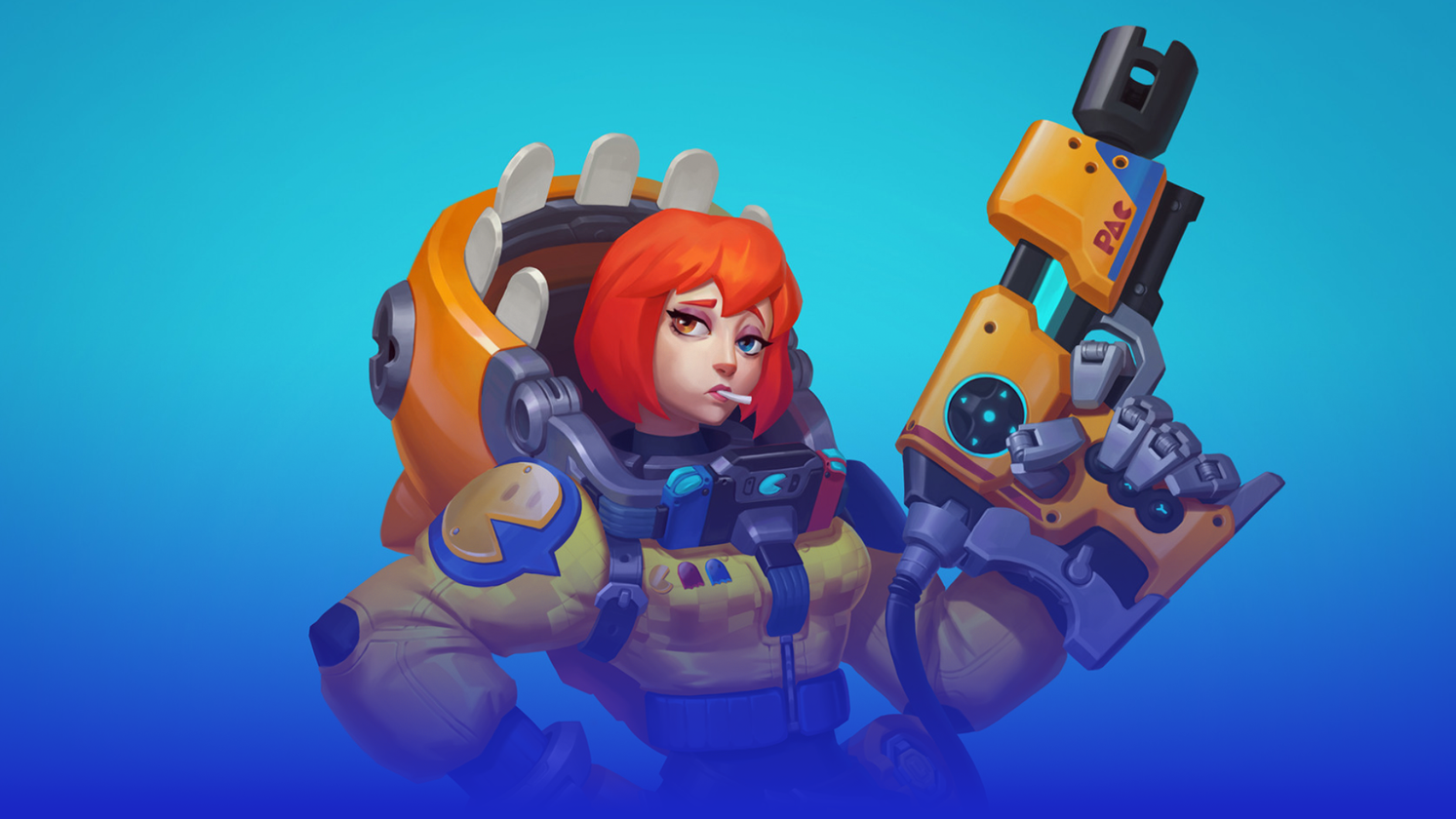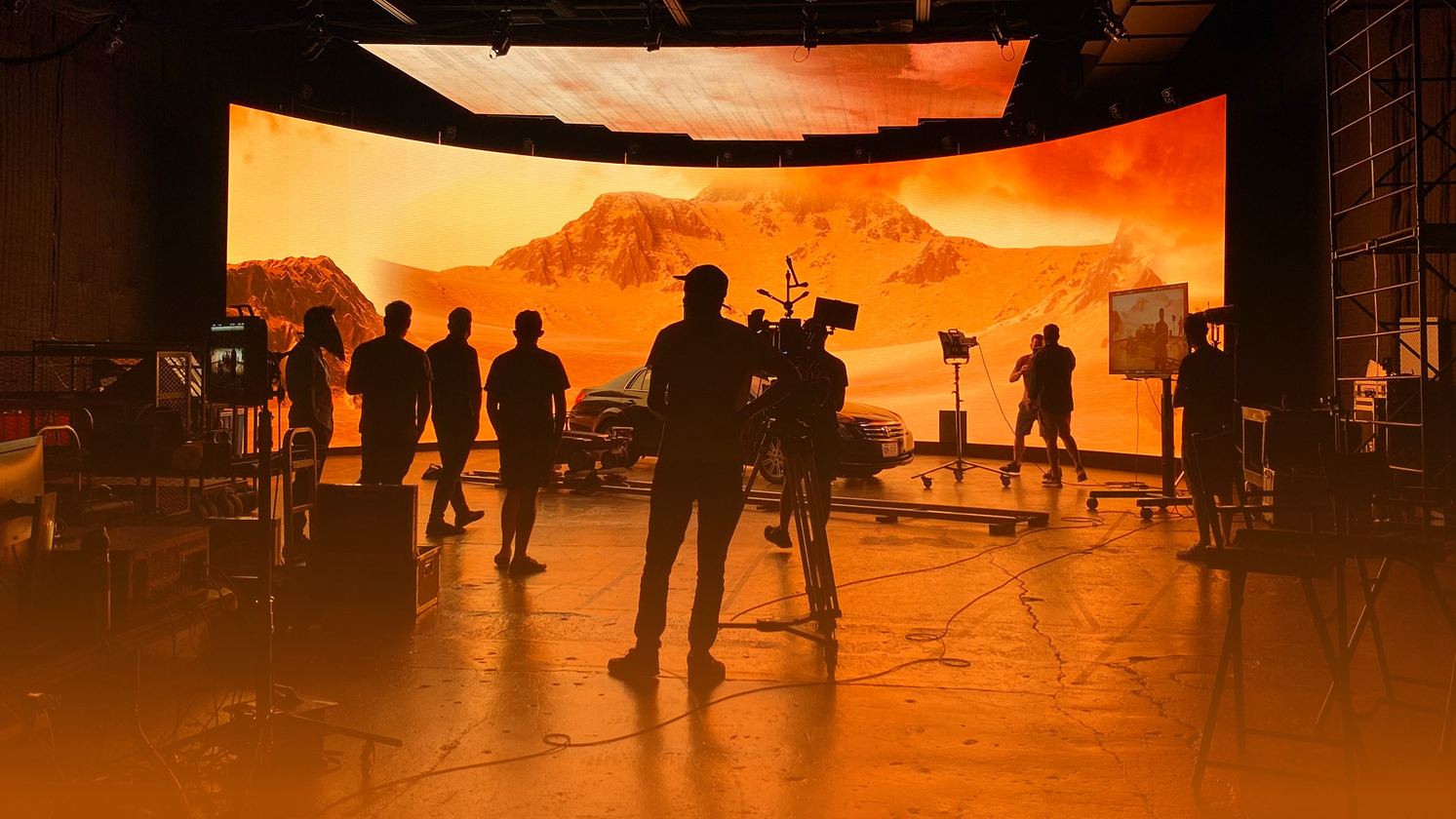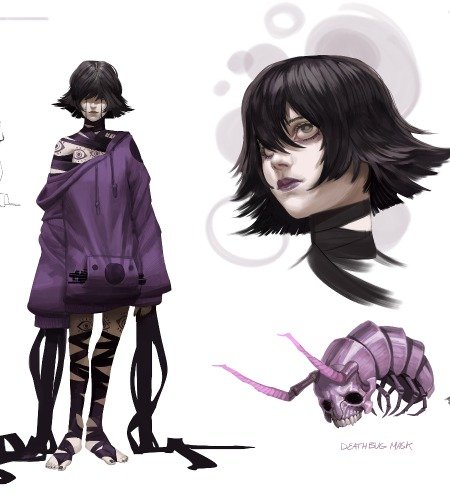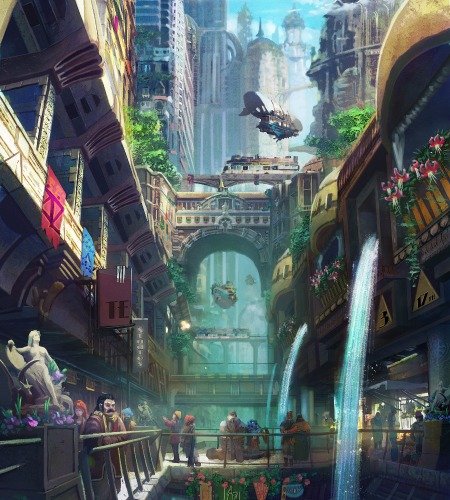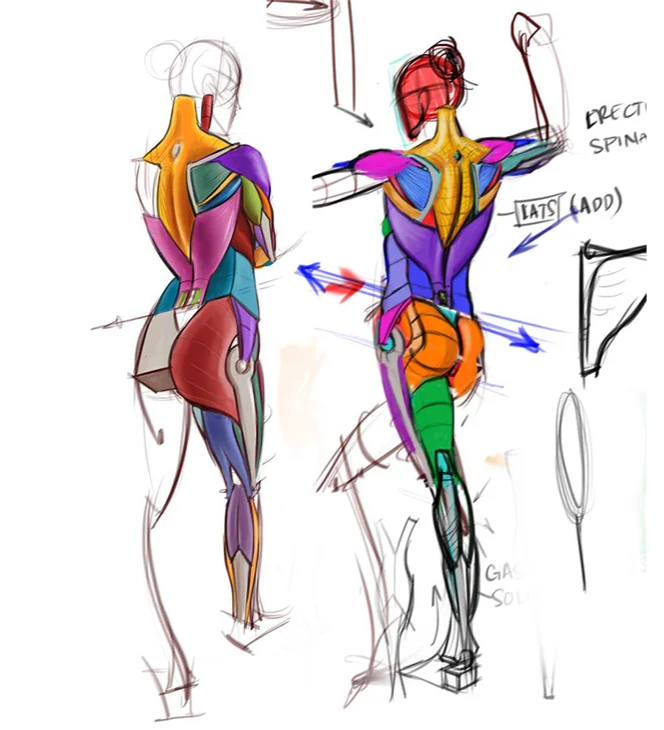How to Navigate Employment Changes in the Entertainment Industry
Most artists join the entertainment art industry primarily because of passion, not necessarily job security. It can be a surprise to learn just how many stable, well-paying career opportunities are actually available to creatives.
But just like every other industry in the world, the entertainment business is constantly changing and evolving. This can lead to exciting new opportunities, or on the flip side, stressful setbacks.
After speaking with FX Technical Director Sean McEwan, we’ve gathered a few tips for how to put your professional and personal well-being in the best position possible, no matter what changes may come.
- Find Stability in Flexibility
- Pay Attention to Big Picture
- Make Yourself Uniquely Valuable
- Monitor Your Workload
- Stay Curious
- Don’t Wait Around
- Cut Yourself Some Slack
- Lean on Your Community

1. Find Stability in Flexibility
Any job that you have in any industry is not guaranteed to be permanent, so it’s important to stay as flexible as possible. For younger artists, this means being open to new positions, with various employers, in different locations. The more you can say yes to, the more opportunities you’ll get.
For professionals who have more commitments, like family, mortgages, and other responsibilities, flexibility can be difficult. Especially if you rely on a salaried, full-time position for security. But it still helps to work on mental flexibility.
You can do this by checking in on your internal goals and interests. Even if you’re happy in your current position, it’s healthy to consider other positions and employers, even if it’s only hypothetical.

Read “Freelance vs Full Time: Which Path is For You?” to explore more career options.
2. Pay Attention to the Big Picture
Let’s face it. As an artist, it can be tempting to ignore the big-picture, business decisions made by studios and clients. But these decisions can have a massive impact on you.
For example, FX TD Sean McEwan shared how mergers or acquisitions can sometimes lead to massive layoffs to reduce redundancy. When a change like this happens to your company, you’re not guaranteed to lose your job.

But it is an opportunity to look around at a changing company and determine if, where, and how you fit in. So be sure to catch up on industry news, especially when your employers are involved!
3. Make Yourself Uniquely Valuable
Even though job permanency is never guaranteed, there are steps you can take to make yourself invaluable to your company. First, identify your skills and understand how they contribute to your employer’s success. If anyone were to ask you what you bring to the table, you should have an answer. Second, fill the holes that your employer needs filled. This might require picking up some new skills or embracing new tasks.

Most importantly, think about how you’re uniquely valuable to your employers. For Sean McEwan, his extensive knowledge of procedural fundamentals stood out from his colleagues. Plus, he could build tools for other artists. So even if he wasn’t the most artistically skilled person at his studio, he was still irreplaceable.
Check out CGMA’s Getting Started in the Game Industry: Interviews, Portfolios, and More course, taught by EA Lead Recruiter Lewis Brown.
4. Monitor Your Workload
After a few years at a studio, Sean realized that all of a sudden, his workload substantially decreased. His coworkers also had less to work on. Figuring the studio was winding down, Sean started looking for a position somewhere else. A few months after he left for a new job, he heard that the company shut down.
If you notice that you or your colleagues suddenly have an unexplained lack of work, it might be time to look around for your next position.
5. Stay Curious
You know that quote about curiosity and cats? Yeah, don’t buy it. As an artist, staying curious about the latest technologies, workflows, techniques, and styles fuels your passion! It can also keep you aware of how the industry is advancing.

If you’re constantly expanding your skills and knowledge, you make yourself extremely useful to your employer or client. And if for some reason you start looking for another job, you won’t feel like you’ve fallen behind.
6. Don’t Wait Around
While there are some signs like mergers, workload, and more, sometimes all you have to go on is an instinctive feeling. Maybe it’s because the studio is making changes, or maybe you’re just ready for a new position.
Trust your gut feeling and start preparing to leave. Start researching the market, ask around your art community, even take some interviews. Plus, it’s always good to keep your portfolio and reel updated. You never know what opportunities are right around the corner.

If you sit around and wait for things to get bad, they’ll get do just that. But if you take the initiative in your career, you can use excitement rather than fear to motivate your job search.
Read “8 Tips to Assemble the Best Portfolio for Entertainment Design” to make your portfolio more impactful.
7. Cut Yourself Some Slack
This one is difficult but important. The truth is, you can do everything perfectly and still end up unexpectedly unemployed. Some things are simply out of your control.
If you suddenly lose your job, there are a lot of logistics to take care of. But it’s essential you’re also taking care of your mental health. Headspace recommends a few tips:
- Give yourself time to grieve, but not dwell
- Establish a routine
- Separate your self worth from that job
- Embrace exploration
- Ask for help

Read “How to Prioritize Health as a Professional Artist” for more mental health tips.
8. Lean on Your Community
Navigating employment changes can be a stressful, overwhelming task. But the good news is, you don’t need to do it alone.
Sean recalled a time when a studio unexpectedly shut down. It was so sudden that people came to work only to find a note on the door telling them they were out of a job. And in the midst of the chaos, Sean remembers all kinds of studios making room on their staff to employ the massive amount of people who’d just had the rug pulled out from under them.

Even though the entertainment industry is competitive, Sean describes it as very supportive. So reach out to your colleagues, peers, and mentors. And with a little help and guidance, it won’t be long until you’re on your next career adventure.
[printfriendly]LEARN MORE
CGMA provides comprehensive instruction for Art, Games, and VFX industries in a variety of courses for a range of students, from 2D and 3D artists looking to supplement their college studies to industry professionals looking to stay up to date on emerging trends and techniques in the field.
RELATED LINKS
Read “Freelance vs Full Time: Which Path is For You?” to explore more career options.
Check out CGMA’s Getting Started in the Game Industry: Interviews, Portfolios, and More course, taught by EA Lead Recruiter Lewis Brown.
Read “8 Tips to Assemble the Best Portfolio for Entertainment Design” to make your portfolio more impactful.
Read “How to Prioritize Health as a Professional Artist” for more mental health tips.


